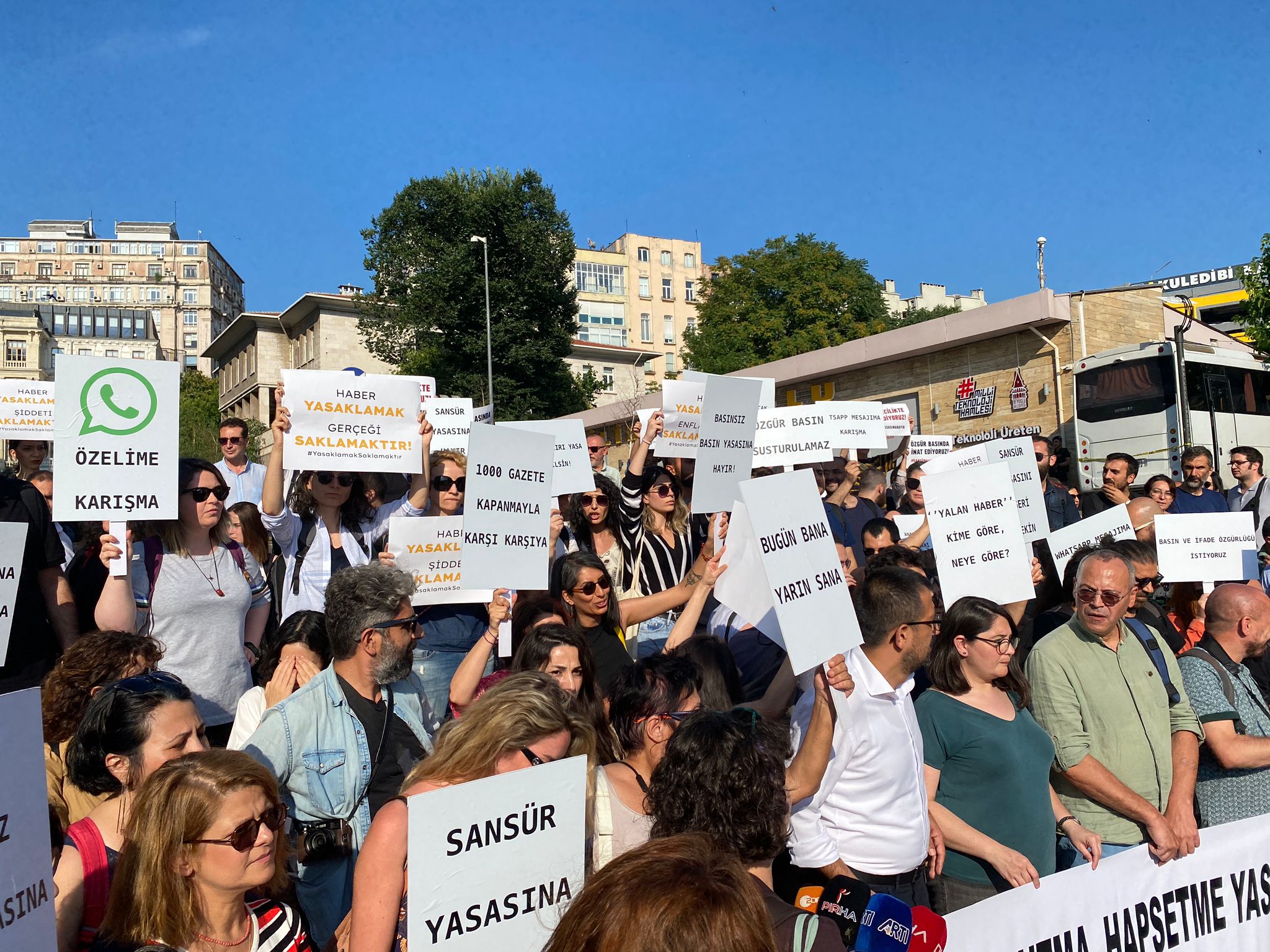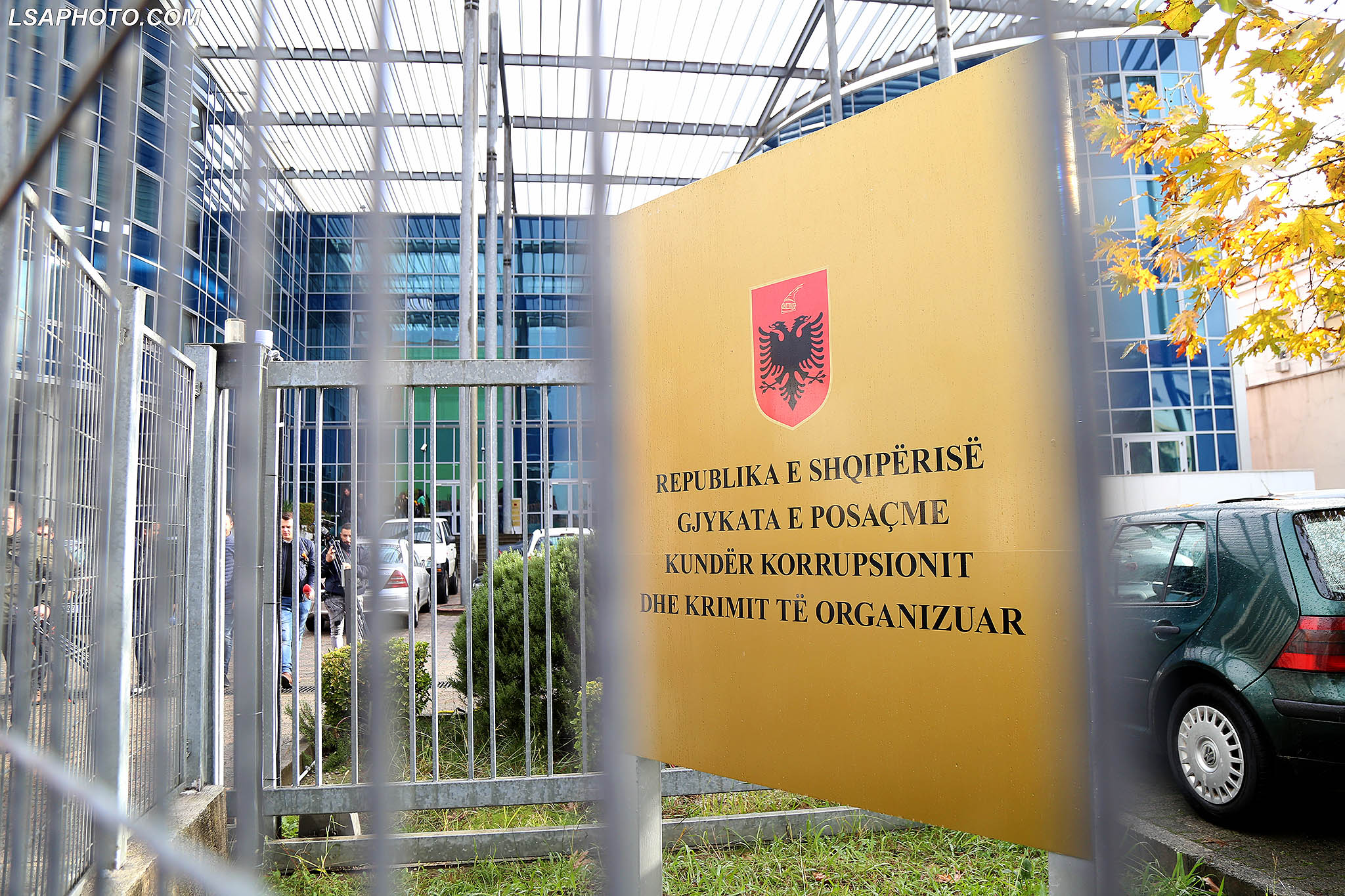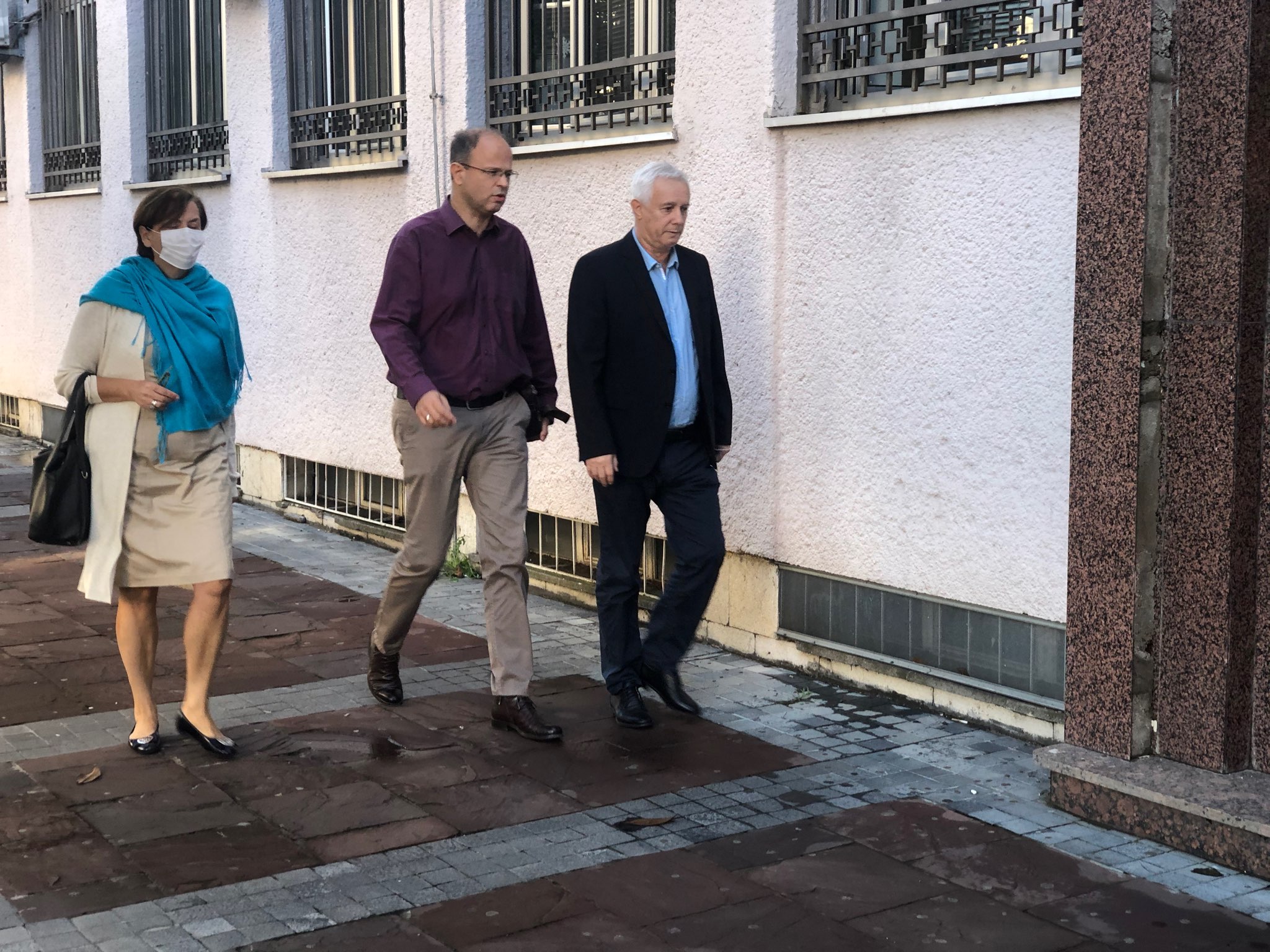Thousands of protesters from journalists’ unions and NGOs gathered in Istanbul and other cities across the country on Tuesday to call on the government to drop the disinformation law which is due to be passed by the Turkish parliament soon.
“It is called the ‘Press Law’, but it has been prepared without being asked for by professional media organisations. There is no article in it to protect journalists or protect the news,” the journalists’ organisations including the Journalists’ Union of Turkey, the Turkish Journalists’ Association and the Press Council said in a statement.
“On the contrary, prison sentences, closures, censorship and heavy controls over internet media are coming,” the statement added.
The legislation was presented to Turkey’s parliament on May 27, aiming to increase government control over the internet, media and social media.
“We are describing this law as the heaviest censorship law in the history of Turkey which will completely destroy the freedom of the press and freedom of expression,” the media organisations said.
“A journalist who does not disclose his news source under the name of ‘fighting disinformation’ will be given a prison sentence. Prosecutors and judges will decide which news is ‘false’ and which news is ‘true’ in line with the vague regulation,” they warned.
The law was prepared by President Recep Tayyip Erdogan’s ruling Justice and Development Party, AKP and its far-right partner, the Nationalist Movement Party, MHP.
The law, which is expected to pass soon, for the first time defines the crime of “spreading misinformation on purpose”.
It envisages punishment for anyone who “publicly disseminates false information regarding internal and external security, public order and the general welfare of the country, in a way that breaches the public peace, simply for the purpose of creating anxiety, fear or panic among the population”.
According to the proposed law, people who spread misinformation can be jailed for one to three years. If a court decides that a person spread misinformation as part of an illegal organisation, the jail sentence will be increased by 50 per cent.
Journalists can also be charged under the new law if they use anonymous sources to hide the identity of a person who is spreading misinformation.





